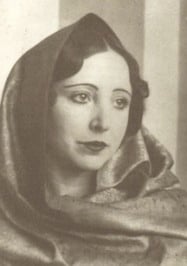Writer’s Block: Lower Your Standards to Write Better
By Kristi Holl | On February 12, 2017 | Updated October 4, 2022 | Comments (0)

Do you have the dreaded cognophobia? It’s a Latin term that translates literally as “fear of thinking” or fear of facing your own thoughts. You may experience it as writer’s block.
“A writer must feel comfortable expressing herself in words, letting them flow before critiquing them or subjecting them to examination,” say Linda Metcalf and Tobin Simon in Writing the Mind Alive. “Many people who have an ambition to write are held back at the starting gate by some form of this condition.”
Judgments from within – we’re our own harshest critics
Is silencing those premature judgments a problem for you? Do you sit frozen at the keyboard, considering and then tossing out ideas and sentences that sound “dumb” or “trite” or ”silly” or void of any literary content at all?
I do it – every time I try something new or try to write on a more difficult level or subject. Like this month. I took a work-for-hire assignment a couple of weeks ago that is giving me fits. It’s for an age group new to me, and it’s a form of writing I’ve never tried before.
After my first effort, the editor very kindly asked me to go back to the drawing board and try again. (He was right to ask.) If I don’t snatch myself bald before I’m done, it will be a miracle.
Advice from the great literary ladies
Help came from an unexpected source today. I’ve been reading and loving The Literary Ladies’ Guide to the Writing Life by Nava Atlas. This morning I remembered some advice from the literary greats that helped me–and might help you too. We are blessed to have so much written correspondence from writers of the past.
I hate to think of all the wonderful material that would have been lost if famous authors e-mailed and texted back then. These quotes particularly struck a chord with me.
Edna Ferber blamed writer’s block on “trying to write better than you can.” Anna Quindlen agreed: “People have writer’s block not because they can’t write, but because they despair of writing eloquently.”
. . . . . . . . . . .
. . . . . . . . . . .
Even Pulitzer Prize winners have trouble
Even Margaret Mitchell who wrote Gone With the Wind had this trouble. She said:
“I had believed that established writers, writers who really knew how to write, had no difficulty at all in writing. I had thought that only luckless beginners like myself had to rewrite endlessly, tear up and throw away whole chapters, start afresh, rewrite and throw away again. I knew nothing about other writers and their working habits, and I thought I was the only writer in the world who went through such goings-on.”
But that was Margaret Mitchell on writing a Pulitzer Prize-winning novel. What about the rest of us? While none of us may be hoping for a Pulitzer, we are hoping for a book contract, an agent, good reviews, and good sales of our children’s writing.
What’s the answer to writer’s block?
Nava Atlas in The Literary Ladies Guide to the Writing Life says the blocked state is: “a self-consciousness that causes you to seize up and shut down … the answer to this is to be where you are with your writing, and not try to write as the Pulitzer Prize-winning fantasy version of yourself. There’s no way to reach soaring heights without taking all the tiny steps to get there.”
And we all have some kind of fantasy writer version that we aspire to. You may not be conscious of it, but you do. Usually it’s helpful, but when that fantasy version of ourselves becomes an inner critic, you have trouble. This judge can kill your words before they ever reach the light of day.
How can we keep this from happening? Anais Nin said this about her own writing: ”The only reason I finally was able to say exactly what I felt was because, like a pianist practicing, I wrote every day. There was no more than that.”
She didn’t study writing or go to conferences or take classes. She simply sat down and wrote about her experiences at the end of every day, without fail. She is most famous for her published diaries too.
Women writers can be our own worst enemies
Perhaps we make things too difficult for ourselves. Maybe our self-induced cognophobia that could be eliminated if we lowered our expectations.
I know that Anne Lamott in Bird by Bird: Some Instructions on Writing and Life advocates writing sh**ty rough drafts instead of holding yourself up to such high inner standards.
As one literary lady suggested, we need to stop despairing of writing eloquently–and just write instead. Get the words down, no matter how bad they may sound. The Pulitzer-type writing (no matter who you are) comes in the rewriting. Be aware of how much you’re writing. Too much filler is as bad as too little. The use of a word count tool is important because it allows the writer to monitor the number of words that they are writing.
. . . . . . . . . . .
. . . . . . . . . . .
With that in mind, I return to the work-for-hire project. Like the Literary Ladies of old, I will be content today with just getting some words down.
How about you? Is there a piece of writing that is stopping you cold because you don’t yet write as well as you want to? Would you benefit from the advice of these Literary Ladies?
. . . . . . . . . . .
Kristi Holl is the editor and main contributor of Writer’s First Aid, an extensive resource for writers of all levels. She is the author of Writer’s First Aid (2003) and More Writer’s First Aid (2011).


Leave a Reply